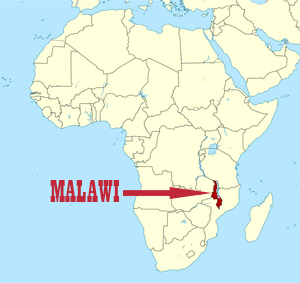 In
Malawi, the
Southern Africa Federation of the Disabled (SAFOD) works with
its national affiliate, the
Federation of
Disability Organisation in Malawi (FEDOMA). FEDOMA is an
umbrella organisation is respected and consulted by both the Government
of the Republic of Malawi and NGOs on issues that relate to disability.
In
Malawi, the
Southern Africa Federation of the Disabled (SAFOD) works with
its national affiliate, the
Federation of
Disability Organisation in Malawi (FEDOMA). FEDOMA is an
umbrella organisation is respected and consulted by both the Government
of the Republic of Malawi and NGOs on issues that relate to disability.
Malawi signed the
Convention on the Rights of Persons with Disabilities (UNCRPD) on 27
September 2007, and subsequently ratified it on 27 August 2009. On
October 2016, Malawi presented the country’s combined initial and second
State Party Report under the Convention to the Committee on the
Rights of Persons with Disabilities. Significant efforts have been made
so far in domesticating the Convention through enactment of relevant
laws and policies. For example, the most notable achievements are the
passing by Malawi Parliament of the
Disability Act in 2012; and the adoption of the
National Policy on Equalization of Opportunities for Persons with
Disabilities in 2006.
However, enforcement of the disability law
remains a challenge, and disability mainstreaming - including general
awareness - appears to be slow. Lack of awareness has been manifested
especially in the rising incidents of
ritual killings of persons with albinism.
With regards to the lack of law enforcement,
this has been manifested mostly on issues of accessibility. The
Disability Act has clauses that force duty bearers and the public to
make all public buildings accessible to persons with disability (by
putting ramps) or risk a fine or imprisonment by a competent court of
law if they default. Yet there has never been a single case so far
brought before the court of law despite clear evidence of widespread
non-compliance.
The 2018 Population and Housing Census (PHC)
Preliminary Report by the
National Statistical Office (NSO), acknowledges that disability was
integrated into the country's latest national population census, and
that the set of questions related to disability that was used was
actually recommended by the
Washington Group on Disability Statistics (WG). It further
acknowledges that, notably, the 2018 Malawi Population and Housing
Census even included questions on albinism, which was not the case in
all past censuses.
However, despite including a summary of
population data disaggregated by age, gender, household size, etc, the
55-page preliminary report does not summarize or mention anything to do
with disability. At the time of publishing report, the full report had
not yet been published by the NSO. At present we do not want to quote
any other population data published in the past when we are aware that
new official data is available even though it is not yet published. We
will, therefore, ensure to update this page with fresh data from NSO as
soon as it becomes available most likely this year (2019).
In terms of the situation of assistive
technology in Malawi, SAFOD and FEDOMA's work related to assistive
technologies did not start with the AT-Info-Map project, as assistive
technologies was one of the important component in the surveys on
Living Conditions among People with Activity Limitations in Developing
Countries carried out in nine of the SAFOD’s ten countries in
Southern Africa. These surveys were part of SAFOD’s regional initiative
to establish baseline data on living conditions among people with
disabilities in Southern Africa, coordinate by the
SINTEF, on
behalf of the
Norwegian Federation of Organizations of Disabled Persons (FFO ) and
SAFOD. in Malawi the first survey was conducted in 2003 and the
Malawi Report was released the following year.
However, another follow-up survey on the
Living Conditions among People with Activity Limitations has been
conducted and completed in 2018, awaiting official release/launch of the
survey report. We will, therefore, update this page soon with new
findings on assistive technology that provides a truer reflection of the
situation on the ground, considering that the last took place some 15
years ago.
